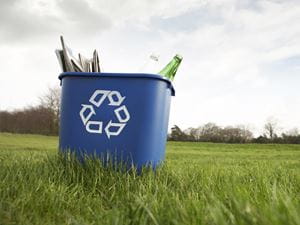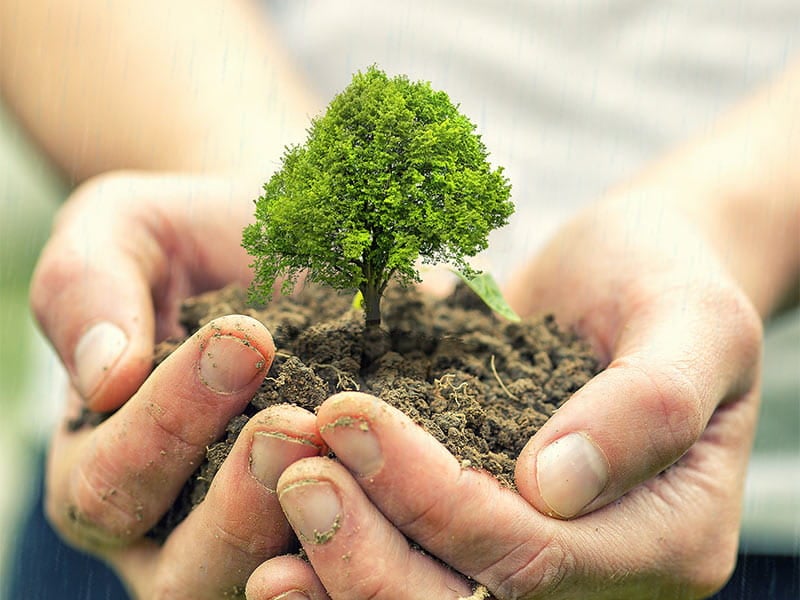
Recycling is one of the easiest ways to help the planet, but far too many people continue to toss their paper, cardboard or aluminum cans into the garbage. Most of those people who put things that can and should be recycled are not throwing those things away because they hate the Earth and want to pollute it. Most likely, they have fallen victim to one of the various myths about recycling and so are convinced that recycling is either a great deal of work or actually makes no difference when it comes to the planet’s health. Neither of these, of course, is true, but misinformation can be hard to dismiss. As such, here are five pervasive recycling myths that simply are not true.
"Recycling must be meticulously sorted."
Many people who refuse to recycle insist on throwing everything in the trash because they believe that recycling needs to be carefully separated. Paper, cardboard, newspaper and magazines must all be in different bags. Aluminum and tin need to be kept separate. Clear glass and colored glass should be kept apart, and heaven help you when it comes to dealing with various types of plastic. A person may want to do their part to help the planet, but the average working person may not have time to sort through everything they discard to separate things out into a dozen different bags and bins. Frankly, most people do not have the space to have that many bins set aside for various forms of recycling and trash. Thankfully, recycling does not need to be so carefully separated today. Now, many places use single stream systems that require little manual sorting. These are fed by the so called blue bins that accept all recyclables. As such, a person simply needs to separate their recycling from their trash. Then, all the recycling gets thrown in one bin, and all the trash goes in the other."Recycled items are made of poorer quality."
Some people see no point in recycling because they believe any products made from the recycled material are of inherently inferior quality. Like the myth about meticulous sorting, recycled items used to be of inferior quality when compared to items made with virgin materials. That said, today most items made from recycled materials meet the same industry standards as those made with virgin materials. There are also many things that are made with a mix of recycled and virgin material."Items made of multiple types of material can’t be recycled."
Another common myth is that items that have more than one type of material cannot be recycled. Any documents that are being recycled need to have the staples removed. Envelopes with plastic windows would have to be torn apart so the plastic could be recycled separately. It sounds like a nightmare. Thankfully, this is very rarely true anymore. The vast majority of areas allow for items made of multiple materials to be tossed into the recycling together. It is, however, a good idea to check with local recycling providers just in case. Some places do request that metal be removed from paper, for example, or that plastic caps be taken off bottles even if they can be left in the same bag."Items can only be recycled once."
Another common myth about recycling is that recycling only does a small amount of good because items can only be recycled once. This, however, is false. Many items can be recycled over and over again. The few that can only be recycled so many times are often used to create different products after each recycling so that they can still be used repeatedly. A plastic, for example, may not be as strong on its third use, but if it is being used for lightweight storage containers such as silverware organizers, the decreased strength is less relevant. Materials that can only be recycled a few times might also be mixed in with virgin materials to create a composite that is stronger than recycled material but more environmentally friendly than an item made purely with virgin materials."Items made of virgin and recycled materials require the same amount of energy."
How in the world this rumor got started is baffling, but it is an overwhelmingly false statement. Many other recycling myths, such as the need for zealous separating, were at least true at one point. This, however, has been false for almost as long as recycling has existed. Items made from recycled materials required only a fraction of the energy that items made from virgin materials use. Aluminum cans, for instance, require 95 percent less energy when they are made from old, recycled cans instead of fresh, virgin aluminum. One ton of recycled cans saves 14,000 kilowatt hours of energy, 40 barrels of oil and 238 million Btu’s of energy.Recycling is a small action anyone can take that can make a big difference in the planet’s health. So, find out what local recycling providers will accept, and get recycling. It will save energy, resources, landfill space and will require fewer trips taking out the garbage.

